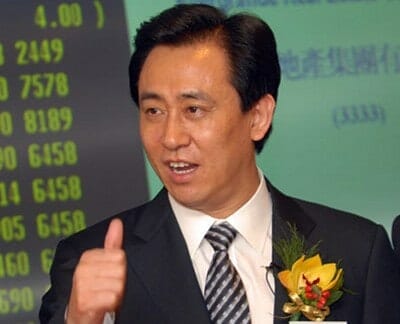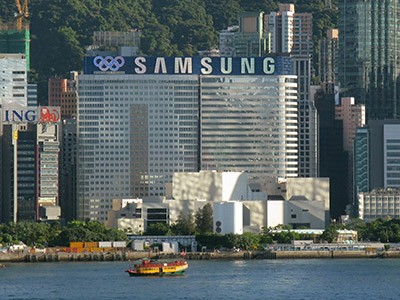
Evergrande boss Xu Jiaying seems all set to keep approving more acquisitions
Evergrande Real Estate saw its stock hammered for the second time in one month after the Guangzhou-based developer bought four residential projects in China’s second-tier cities last week for $2.1 billion.
Shares in Evergrande slid nearly seven percent on the Hong Kong stock exchange on Thursday and Friday after the company announced at the end of Wednesday that it was buying the projects in Hainan, Guangdong and Hubei provinces from rival New World Development (China) Limited. Even before this latest acquisition, Evergrande has repeatedly been cited by analysts as China’s most indebted developer.
The stock slide was a repeat performance for the company controlled by flamboyant billionaire Xu Jiayin after investors had punished its shares by over eight percent on November 13th following Evergrande’s $1.61 billion acquisition of an office tower in Hong Kong.
Latest Acquisitions Top $6.8B Buying Spree
Evergrande is buying a project in Haikou, the capital of Hainan province, along with associated loans for RMB 8.6 billion; another in the city of Huiyang, near Shenzhen in Guangdong province for RMB1.1 billion; and two developments in Wuhan, the capital of Hubei province for a total of RMB 3.8 billion; all from New World.
In its announcement to the stock market, the top-five mainland developer pointed out that all the projects purchased had some unique selling points. The Haikou location is described as enjoying outstanding sea views and proximity to the city government, while the Wuhan developments are praised for being convenient to the central business district in the capital of Hubei province.

Last month Evergrande paid a record $1.6 billion to acquire the Mass Mutual Tower in Hong Kong
In Huiyang, the project is said to include an existing golf course and to be within one hour’s drive of Shenzhen and its growing high tech economy. Evergrande has already amassed a significant land bank in Shenzhen, where prices for new homes have surged by 40 percent in the last year, according to official government figures.
However potentially valuable the projects may be, they also represent fresh financial commitments for Evergrande, which has already committed to $6.8 billion in acquisitions this year, according to company announcements.
In addition to the deal for Chinese Estate’s Mass Mutual Tower in Hong Kong, during October Evergrande also bought a project in Chongqing from a consortium of three Hong Kong developers, including Chinese Estates. That transaction was preceded in July by Evergrande’s HK$6.5 billion ($839 million) acquisition of three development projects in Chengdu, Sichuan province from Chinese Estates subsidiary Evergo Holdings (China).
In addition to these property deals, in late November Evergrande agreed to acquire a fifty percent stake in domestic insurer Great Eastern Life Assurance (China) Co Ltd for RMB 3.9 billion ($617 million).
Evergrande Needs to Repay $16 Billion in Next 12 Months
For the acquisitions from New World, Evergrande took the unusual approach of paying for the projects on the installment plan, just as it had agreed for its purchase of the Mass Mutual Tower earlier in the month. Evergrande will be paying New World for all four projects in a series of five installments over the next two years.
The installment approach likely represents an attempt by Evergrande to build up its portfolio of assets while juggling a balance sheet that is already highly leveraged, with the company said to have $16 billion in debt coming due in the next 12 months.
According to an analysis in the Wall Street Journal following the acquisitions from New World, “Evergrande’s reported net debt to equity ratio was 86%. But count perpetual bonds as debt instead of equity, and that level is actually 230%. The industry average is 80%, according to Deutsche Bank.”
Credit agencies were also skeptical of this latest set of deals. “Evergrande’s acquisitive appetite puts pressure on its weak liquidity profile and will keep its debt leverage elevated,” Franco Leung, a senior analyst with Moody’s Investor Service commented.
However, Moody’s also pointed out that Evergrande could potentially fund at least part of the cost of these latest acquisitions from pre-sales of its existing pipeline of properties, after the developer reported strong contracted sales last month.
Leave a Reply